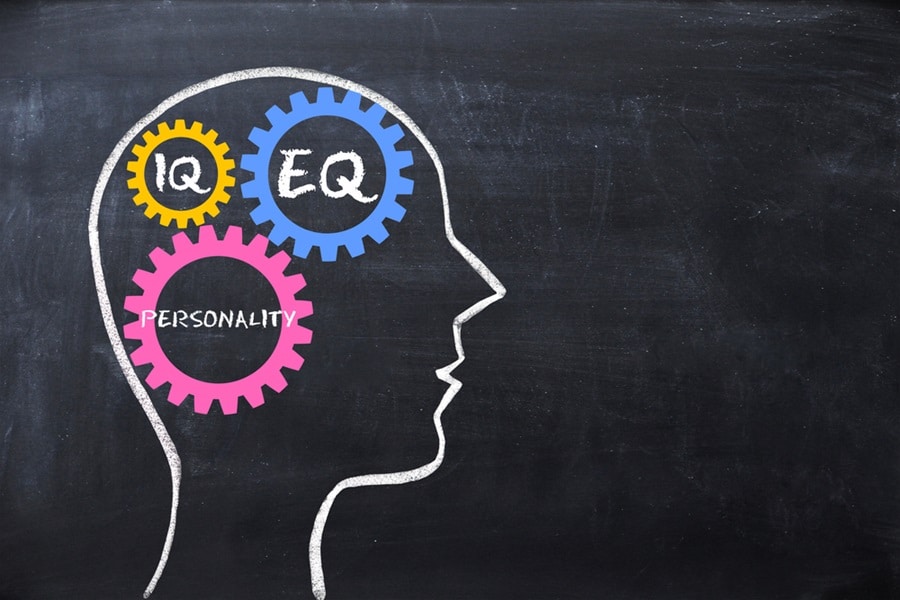The human brain is one of the most complex and amazing organs in the body. It controls everything we do, from thinking and speaking to moving our muscles. And it’s not just our cognitive abilities that rely on the brain; our physical health depends on it too. The food we eat has a huge impact on the health of our brains, both now and in the future. In fact, what we eat can actually help protect our brains from conditions like Alzheimer’s disease and dementia. So what are the best foods for your brain? This article will look at ten of them!
Contents
Salmon

Salmon is a great food for your brain because it’s packed full of omega-3 fatty acids. These essential fatty acids are important for cognitive function and help keep the brain healthy. They also play a role in preventing age-related conditions like Alzheimer’s disease. Salmon also contains vitamin B12, which is essential for healthy brain function due to its ability to protect nerve cells.
Blueberries

Blueberries are another great food for your brain. They are packed with antioxidants, which help protect the brain from damage caused by free radicals. Blueberries also contain anthocyanins, which are plant compounds that have been shown to improve cognitive function in older adults. In addition to those benefits, blueberries are a good source of vitamin C which has been shown to improve cognitive function by increasing blood flow to the brain.
Broccoli

Another brain-boosting food you should add to your diet is broccoli! It’s high in vitamin K, which is important for cognitive function and has been shown to reduce the risk of Alzheimer’s disease. Broccoli also contains antioxidants such as vitamin C and beta-carotene, both of which help protect the brain from damage. Beta-carotene specifically helps by increasing the production of dopamine, which is a neurotransmitter that plays an important role in cognitive function.
Turmeric

Turmeric is a spice that has been used in traditional medicine for centuries. It’s now being studied for its potential benefits to the brain. One of those benefits may be its ability to protect the brain from damage caused by Alzheimer’s disease. Tumeric is also being studied for its mood-enhancing capabilities. It’s thought that the active compound in turmeric, curcumin, can improve mood by increasing levels of serotonin and dopamine in the brain.
Walnuts

Walnuts are a great source of omega-3 fatty acids, just like salmon. They also contain antioxidants and vitamin E, which are important for maintaining brain health. In addition, the magnesium found in walnuts is vital for cognitive function since it helps to maintain the chemical reactions and aids synaptic transmission that takes place in the brain during learning and memory. You may receive more of the benefits of walnuts by eating them ground up since the grinding process helps to release more of the beneficial compounds.
Avocados

Avocados are another brain-healthy food. They are a good source of healthy monounsaturated fats, which help keep the brain functioning properly. Eating monounsaturated fats can help to lower blood pressure which has been linked with cognitive decline. Avocados also contain vitamin E, which is a powerful antioxidant that helps protect the brain from damage. The reason vitamin E is essential for the brain is due to its ability to protect cells from damage due to oxidative stress.
Kale

Kale is a green leafy vegetable that is high in antioxidants, including vitamin C and beta-carotene. It’s also a good source of omega-3 fatty acids. All of these nutrients are important for maintaining brain health. Kale is also a good source of vitamin B6, which is necessary for the production of serotonin, a neurotransmitter that is essential for mood and cognitive function. Vitamin B6 may also assist by lowering homocysteine levels since high levels of this amino acid in blood have been linked to an increased risk of dementia, Alzheimer’s disease, and cognitive decline.
Eggs

Eggs are a good source of choline, an essential nutrient that is important for cognitive function and memory. Choline helps to keep the brain functioning properly by protecting the cells and ensuring that the neurotransmitters that are responsible for cognitive function are working properly. Eggs are also a good source of folic acid, which is another nutrient that is important for cognitive health. Folic acid is essential to the nervous system and its ability to affect mood and cognitive function in people over 50. Low folate levels have been linked to Alzheimer’s disease and vascular dementia in elderly people.
Quinoa

Quinoa is a grain that is high in protein and fiber, as well as several essential vitamins and minerals. It’s high in iron, which is important for healthy red blood cells and brain health. It also includes riboflavin (Vitamin B2), which promotes brain and muscular cell health. Quinoa also contains flavonoids, which are antioxidants that have been linked with improved brain function and aiding in memory production. This is due to their capacity to enter the brain and interact with the cellular and molecular architecture involved in memory function.
Peanuts

Peanuts are a legume high in unsaturated fats and protein, which keep people’s energy levels up all day long. Peanuts also contain numerous vitamins and minerals that are essential for brain health, including large amounts of vitamin E and resveratrol. Resveratrol is a polyphenol that has been linked with reducing the risk of neurodegenerative diseases like Alzheimer’s and Parkinson’s. In addition, peanuts are a good source of niacin, which is important for brain energy metabolism and cognitive health.
Conclusion
Brain health is just as important as physical health and should be taken into consideration when it comes to our diets. The ten foods listed above are all great for keeping your brain functioning properly and protecting it from disease. Incorporate these brain-healthy foods into your diet to ensure that your mind stays healthy for years to come. If you notice any decrease in cognitive function, always make sure to discuss it with your doctor as soon as possible!


